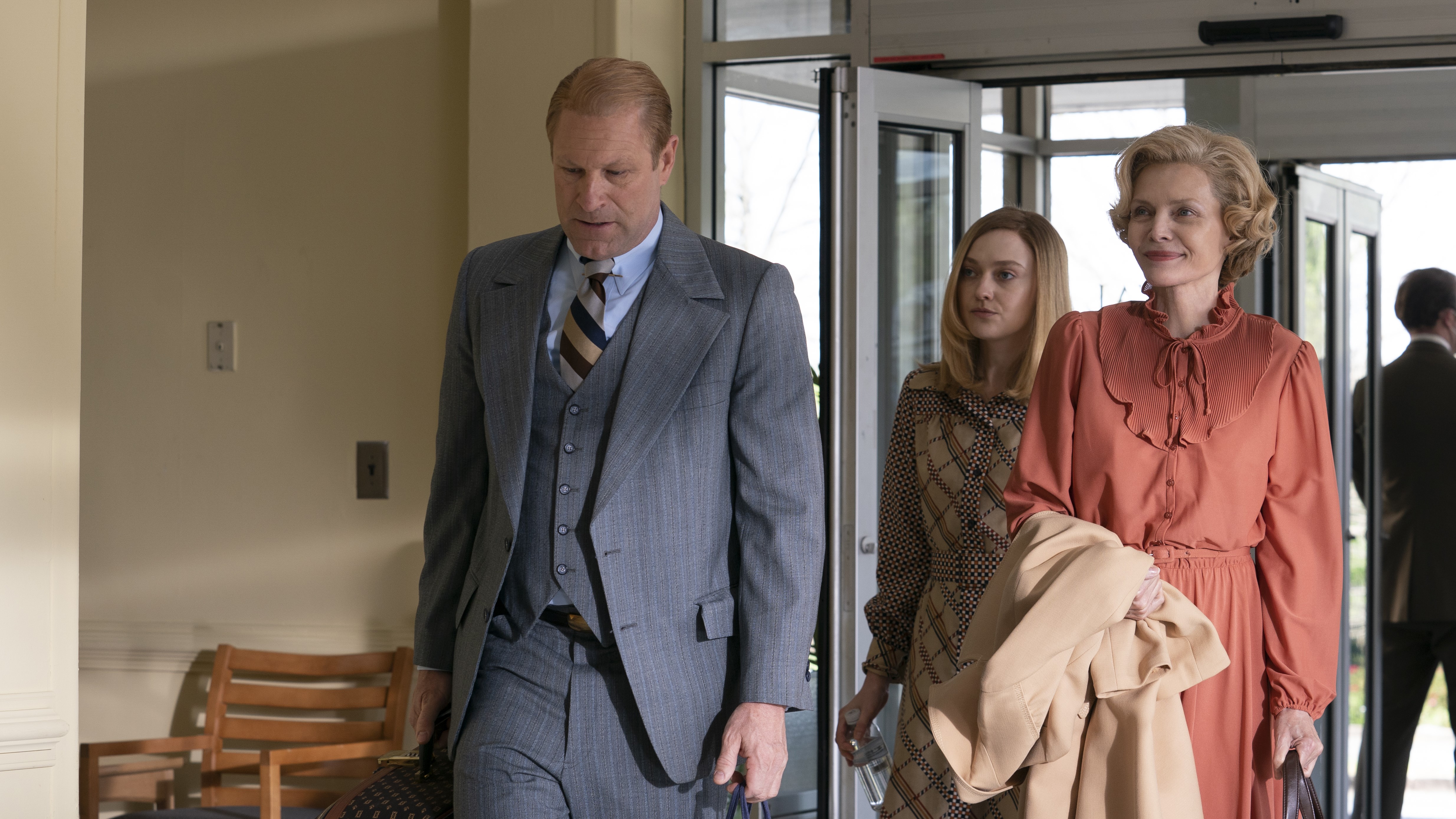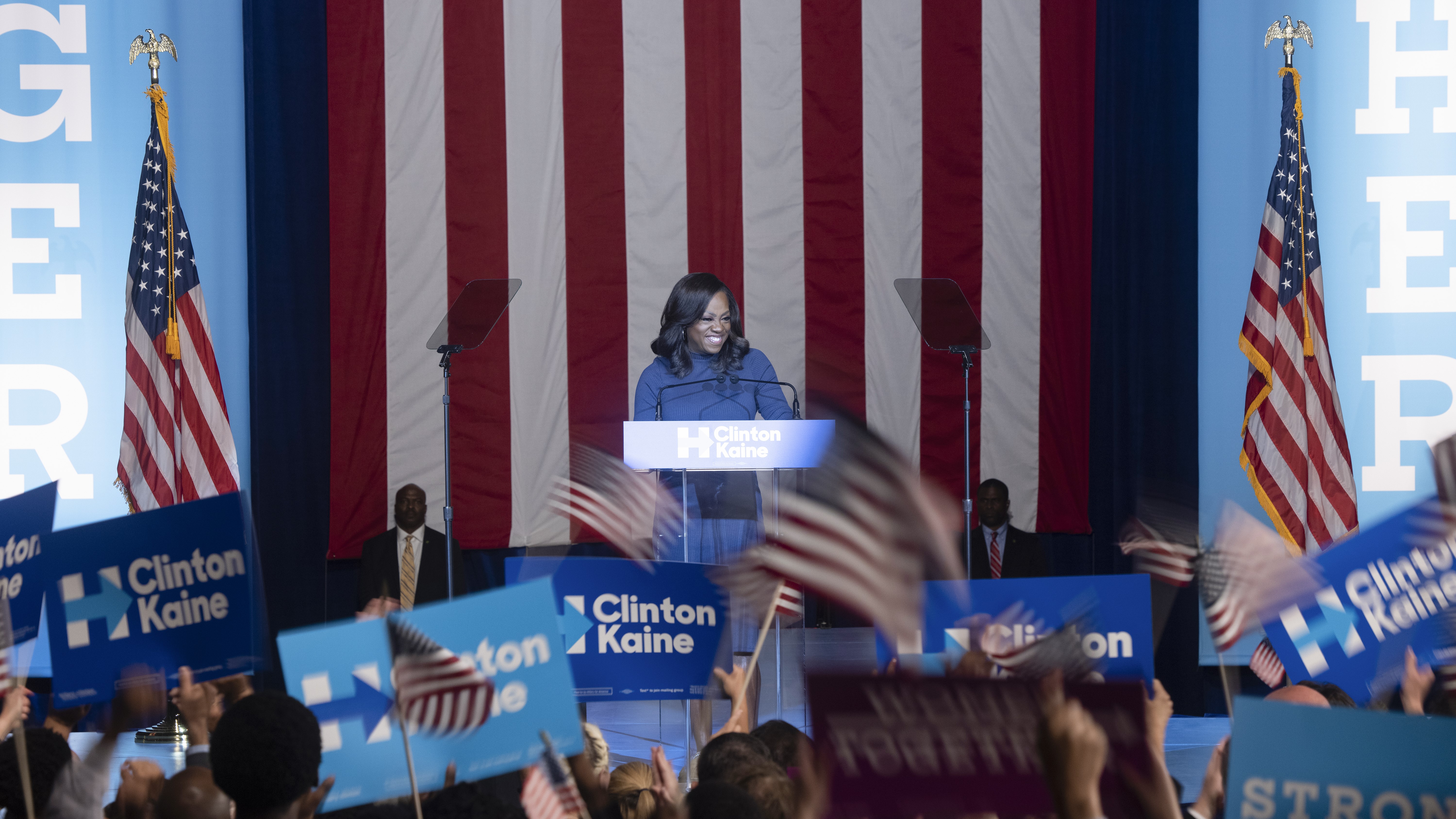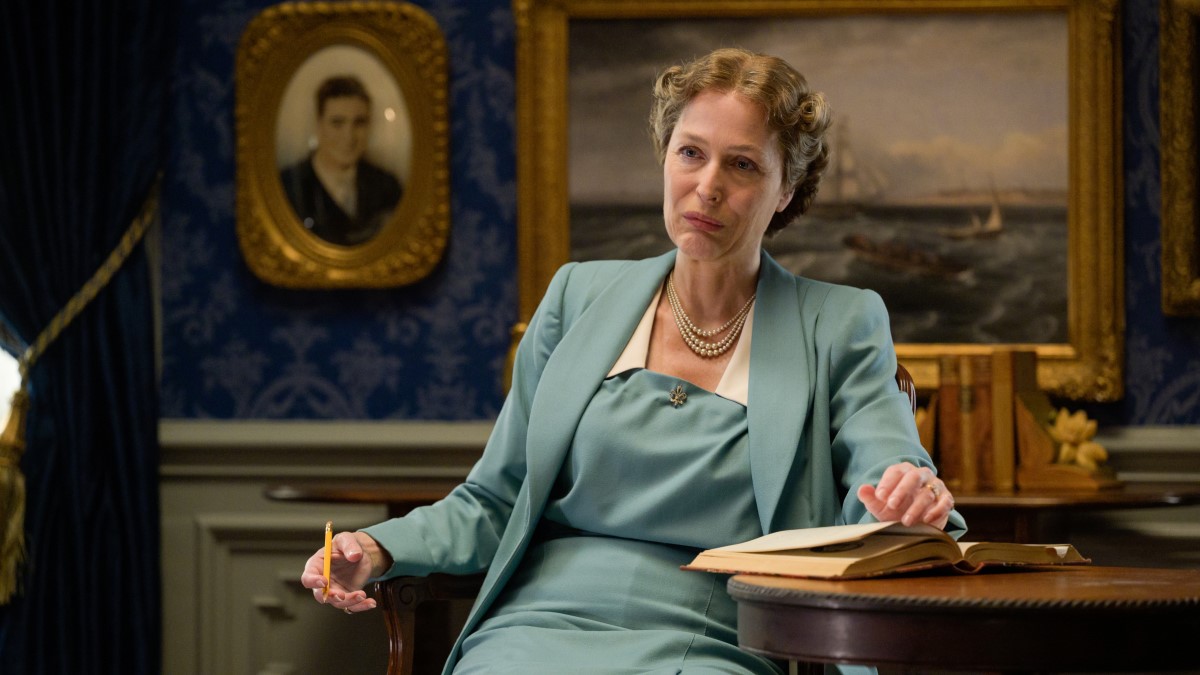What to Watch Verdict
With one more episode to go, the strengths and weaknesses are more apparent than ever.
Pros
- +
The Ford family at Betty's intervention
- +
Eleanor's radio address
- +
Some more standout moments for Michelle Pfeiffer
- +
The conflict between Michelle and the Clinton campaign
Cons
- -
Paper-thin characterization for supporting players like Hick
- -
Revisiting the 2016 election
NOTE: This post contains spoilers for The First Lady season 1, episode 9, “Rift” Read our previous The First Lady season 1 episode 8 right here.
Archival footage is expertly deployed throughout The First Lady, whether acting as a transition between eras or supporting what is unfolding in a specific storyline. In the penultimate episode, images of injured men at Pearl Harbor quickly reveal the magnitude of the scenes developing at the White House and the guiding role the first lady will undertake. The use of authentic images interspersed with dramatized moments helps set the scene and yet it also suggests that maybe this anthology would have been better as a docuseries, even if documentaries can also be limited in scope.
The First Lady's performances have made a case for this series — even with the loosely shared themes. Crisis management is central to each situation in "Rift," whether it is Eleanor (Gillian Anderson) as a source of strength, Betty’s (Michelle Pfeiffer) personal challenges or Michelle (Viola Davis) aiding Hillary Clinton’s (Kate Burton) campaign. The results vary and tonal whiplash from the different situations is more pronounced.
In the case of Eleanor, we get to see how vital she is at a time of war and how her husband has a keen sense of her strengths. Last week, Betty became the mouthpiece for the Fords when her husband lost the election, but Eleanor’s role goes wider. In the wake of the Pearl Harbor attack, Franklin (Kiefer Sutherland) wants his wife to use her platform to speak to the nation first because she is "the heart" of this administration. Previously, they butted heads about what action to take, however, they are now on the same page. Eleanor’s daily contact with the American public via the newspaper and radio utilizes the media in an unheard way for a first lady. Franklin understands this value.
Eleanor hits all the right notes, with Anderson nailing the delivery of this pivotal speech. News footage shows the transition of time and Eleanor’s successful trip to London. When she returns home, she checks in with Franklin and the world map he uses to show where their four sons are stationed — he reports all four are safe.
Affection, vulnerability and intimacy are all displayed in a scene that emphasizes how close the pair remain. They joke with each other, but Franklin is also quick to heap praise on his wife, calling her "singular, formidable, relentless, irreplaceable." The fact his mother insisted they stay together after Eleanor discovered Franklin was unfaithful is seen as Sara Roosevelt’s (Ellen Burstyn) greatest act. "A team to the end" is the present-day proclamation, but the same cannot be said for Hick (Lily Rabe).
Despite their adjoining rooms, the demands of Eleanor’s job continue to get in the way. "You belong to the country. You always did," is Hick’s parting sentiment when she realizes she will never get her dream of it just being the two of them. In recent episodes, Hick is characterized by her drinking and frustrations. Due to the limiting format of the series, Hick suffers the same fate as the undeveloped romantic partners in the other timelines.
The latest updates, reviews and unmissable series to watch and more!
However, Aaron Eckhart gets a moment to shine in the 1978 portion of the story as the Ford family confronts Betty’s addiction head-on. Gerry has been incredibly passive throughout and tries to brush off Susan’s (Dakota Fanning) concerns. After last week's episode, Susan finds her mom lying face down on her bedroom floor. While Betty is in the shower, her daughter discovers enough pill bottles to open a pharmacy and decides to act on her own after Gerry brushes it off as her mother’s old shoulder injury.
The first attempt at what we would now call an intervention is a disaster. Betty is cold and cruel when her daughter tells her, "I’m afraid that you’re going to die." Betty kicks her daughter and the doctor out and begins to pack a suitcase. Gerry is on the receiving end of her fury when he comes home from the golf course and it's only now that he understands his daughter is right. As Betty swings between feeling betrayed and angry, Pfeiffer's performance is outstanding, as are the expressions that form on her face when the whole family comes to Palm Springs for the second intervention.

One after one, her sons tell Betty they were scared of her growing up because of the mood swings. Gerry shoulders the blame because he mixed her cocktails and said the White House doctors should prescribe whatever she wanted. Eckhart and Fanning convey the fear that comes from seeing a loved one in this position and it's a teary scene — for the performers and viewers. Betty is reluctant but agrees to rehab and her reaction to this personal crisis is why The First Lady has been worthwhile.
In the near-present, the ugliness of the 2016 election is front and center. My heart sank when I realized the Access Hollywood tape (you know the one) was central to this episode; it feels far too soon to cover this recent history. The Obama breakfast is interrupted by the conversation that would send shockwaves but ultimately not push Hillary Clinton over the finish line.
One element that doesn’t feel like regurgitating old talking points is the conversation between Michelle and Hillary regarding Hillary's comments during the 2008 campaign. Michelle is frustrated she is only called upon to help when they need to secure Black voters and her conversation with Hillary clarifies that Michelle needs reassurance. Hillary’s plea that "no one is better prepared than me" is enough and archive footage is used to cut between Davis doing the infamous "When they go low, we go high" speech with the real New Hampshire DNC crowd.

After last week’s Ford defeat, another disappointing election night follows and flashes of the healthcare plan the Obamas fought so hard for are in danger of being gutted. The episode ends with a look of concern on Michelle’s face, but the battle is far from over.
Watch The First Lady on Showtime in the US and in the UK you can now stream it on Paramount Plus.
Emma Fraser spends most of her time writing about TV, fashion, and costume design; Dana Scully is the reason she loves a pantsuit. Words can also be found at Vulture, Elle, Primetimer, Collider, Little White Lies, Observer, and Girls on Tops. Emma has a Master’s in Film and Television, started a (defunct) blog that mainly focused on Mad Men in 2010, and has been getting paid to write about TV since 2015. It goes back way further as she got her big start making observations in her diary about My So-Called Life’s Angela Chase (and her style) at 14.


